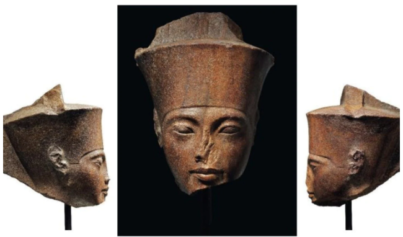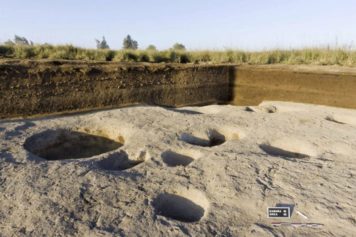President Bashar al-Assad recently gave an interview to Syrian al-Thawra daily. In the interview, President Assad talks about the ongoing conflict in his country as well as the political instability in Egypt. Assad blames both extreme Islam and extreme following of western culture as ideologies that threaten Arab identity.
The following is an excerpt from President Bashar al-Assad of Syria recent interview:
Interviewer: During this difficult time of crisis, it has often been said that Syria can accommodate everyone, but in reality it has not embraced all of its citizens. What has led us to this point?
President al-Assad: First of all, I would like to welcome you in my office. I am particularly pleased that this interview coincides with the 50th anniversary of Al-Thawra newspaper. This is a momentous occasion for every patriotic Syrian irrespective of their political affiliation.
We often view nations as a group of people occupying a certain territory; whereas in fact a nation is about a sense of belonging and of culture which both ultimately form a collective identity. With a strong sense of belonging, we can ensure a united country that includes everyone. When the colonial powers left Syria, it was not to liberate the country but to reoccupy it through other means.
One of their core strategies was to divide and conquer. By division, I do not mean redrawing national borders but rather fragmentation of identity, which is far more dangerous.
When we live in the same territory but have different identities, we are already a divided country because each group isolates itself from the rest. When this happens, it is right to say that the country does not accommodate everyone.
In this context colonialism has been successful in creating separatist groups that consider their ideologies and values as solely and legitimately representing the country and hence rejecting all other groups. This success has not happened overnight, but rather during several stages.
The first of which was the Omayyad dynasty, where identities were tampered with, chasms created and many common elements destroyed resulting in fragmentation and ultimately the collapse of the Omayyad State. The same also applies for the Abbasid caliphate in ancient history and the fall of Palestine in modern history.
The rifts we have witnessed in modern history have come with the emergence of the Muslim Brotherhood and the negative role they have played after the independence of many Arab countries like Syria. They created the first split between Pan-Arabism and Islam, working hard to form a country for Islamists and another for nationalists. These attempts continued when colonist powers in Lebanon attempted to create a country for Muslims and another for Christians. The implications of the Muslim Brotherhood have transpired, the most dangerous of which is the presence of Al Qaeda which was generously supported by the West on the back of the Islamic revolution in Iran. After this revolution, Iran emerged as a firm supporter of the Palestinian cause, the essence of Arab identity. They attempted to incite sectarian strife between Sunnis and Shiites and to damage the relationship between Arabs and Persians. After the 9/11 events and the invasion of Afghanistan and Iraq, these rifts were extended between the takfiris and all other Muslim sects.
The more schism in a country, the less it is able to accommodate its entire people. On the contrary, Syria is still accommodating to all Syrians due to people’s ability to grasp these realities and reject this strife hence preventing it from materializing. Syria remains for all Syrians as long as we can prevent these pockets of extremisms from spreading.
Interviewer: Mr. President today is the fiftieth anniversary of the establishment of Al-Thawra Newspaper. You first stated that what is happening in Syria is not a revolution; certainly you had a conceptual foundation behind these statements. Here let me reference the Russian foreign minister Sergei Lavrov, during his first meeting with the opposition delegation in Moscow when they introduced themselves as revolutionaries; he asked them, “If you are revolutionaries representing a revolution, why do you need the outside world?” There is a historical saying: no state in the world can endure a popular revolution. I personally entirely subscribe to this theory. What made you say that it was not a revolution from the inception?
President al-Assad: From a historical perspective, any genuine revolution is purely internal and cannot be linked externally by any means, as manifested by the Russian, French and even the Iranian revolutions. Real revolutions are intrinsic, spontaneous, and are led by intellectual and ideological elites. What occurred in Syria since the outset of the crisis was flagrant external interference. There were attempts to hide this, but it has become absolutely clear. This is evident by the fact that we continuously hear external extrinsic statements regarding what should and should not be done in Syria.
Secondly, the real revolution of 1963 – which your newspaper is named after – was a revolution that empowered the country, society and human values. It promoted science and knowledge by building thousands of schools, it brought light to the Urban and rural areas of Syria by building electricity lines and networks, it strengthened the economy by providing job opportunities according to competencies. It supported the wider foundations of society including farmers, labourers and skilled-workers. The revolution at the time built an army indoctrinated in national values that fought the fiercest of battles, it stood unwavering in those difficult circumstances and it won in the 1973 war. We are now perhaps enduring the most challenging circumstances in which the army has shown that its revolutionary foundations and ideological values are as strong as ever.
Revolutions are about building countries and societies, not about destroying them; so how can we call what is happening in Syria a revolution? Attempts to package the events on the ground as a part of a revolution have been futile from the beginning.


